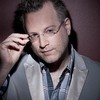This question originally appeared on Quora:Why is there no longer an MIT blackjack team?
Answer by Ben Mezrich, New York Times Bestselling Author of Seven Wonders, Bringing Down the House, and the book that became The Social Network.
There is still an active MIT blackjack team. However, the glory days of card counting have certainly evolved over time with the advent of the automatic shuffler, facial recognition software, and other advances in technology. In addition, the casinos have certainly gotten tighter and stricter about their policies regarding "card counting." A casino is considered a private property, and they can therefore decide whether or not to allow someone to gamble there. If they see someone card counting, it is considered "against their policy", and they will swiftly ask you to leave or take your gaming to another establishment. To the casino, you are not playing by "luck" if you are card counting, therefore you are not following their rules of play. Strict card counters have about a 2% advantage over the house. This advantage has not significantly been altered by automatic shufflers, but can obviously go down drastically if you find yourself booted early into your game!
Even though I am most well known for my non-fiction--if you can imagine, I actually started as a fiction writer. Back in 1996, after having written 9 unpublished novels, my 10th one was accepted by Harper Collins to be published. Threshold told the story of a young geneticist investigating the death of a love interest's father. Goodreads compared it to The Firm and The Andromeda Strain, which was a huge compliment for me since both Grisham and Crichton were idols to me and writers that I aspired to be.
But my writing career actually started from even a younger age. By the age of 12, I knew I wanted to be a writer. I was the storyteller of my household--having grown up with two brothers and being a middle child, I found myself quietly observing my surroundings during the day and by night, at the dinner table telling stories--albeit some exaggerated--of the goings on of our local block in Princeton. I wrote my first novel at the age of 12. I think I scratched it out in pencil on paper at my aunts house on the Jersey Shore one summer.
I also had an obsession with TV and movies when I was a kid--and still do. I read like crazy to earn the right to watch tv in my household. I was compelled by fiction. With TV and movies--I loved how visual both mediums were and when I wrote, I strove to create a scene akin to how a movie plays out. Fiction came as a natural genre to me because creating a story--crafting the plot, laying out the characters, their back stories, the three acts that would drive them through the end of the story was easy for me. Just like the stomach flu, I always feel like I have the story inside of me and I'm just waiting to vomit it out.
My wife knows about my inherent story-telling skill and likes to play lazy when we go to cocktail parties or dinner parties. Her favorite thing to do to me is to start a conversation with, "Ben, tell them that story about..." I call her "conversationally lazy," since she relies on me to tell most of the stories. She claims that I am the better of the two of us, so it's my job to tell the story. I guess in some ways she has a good point.

